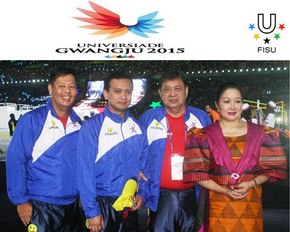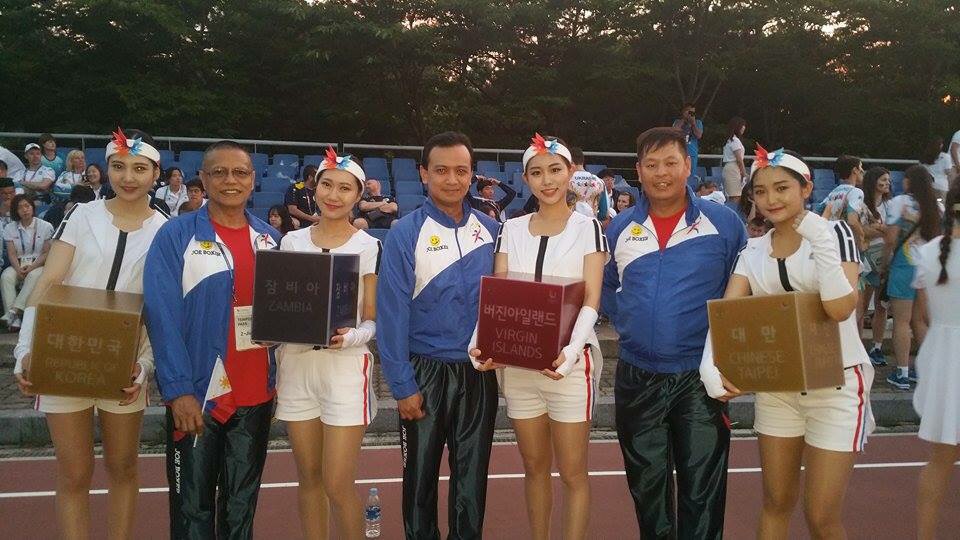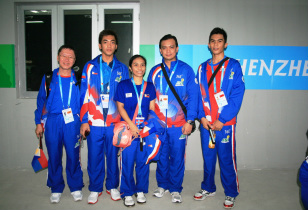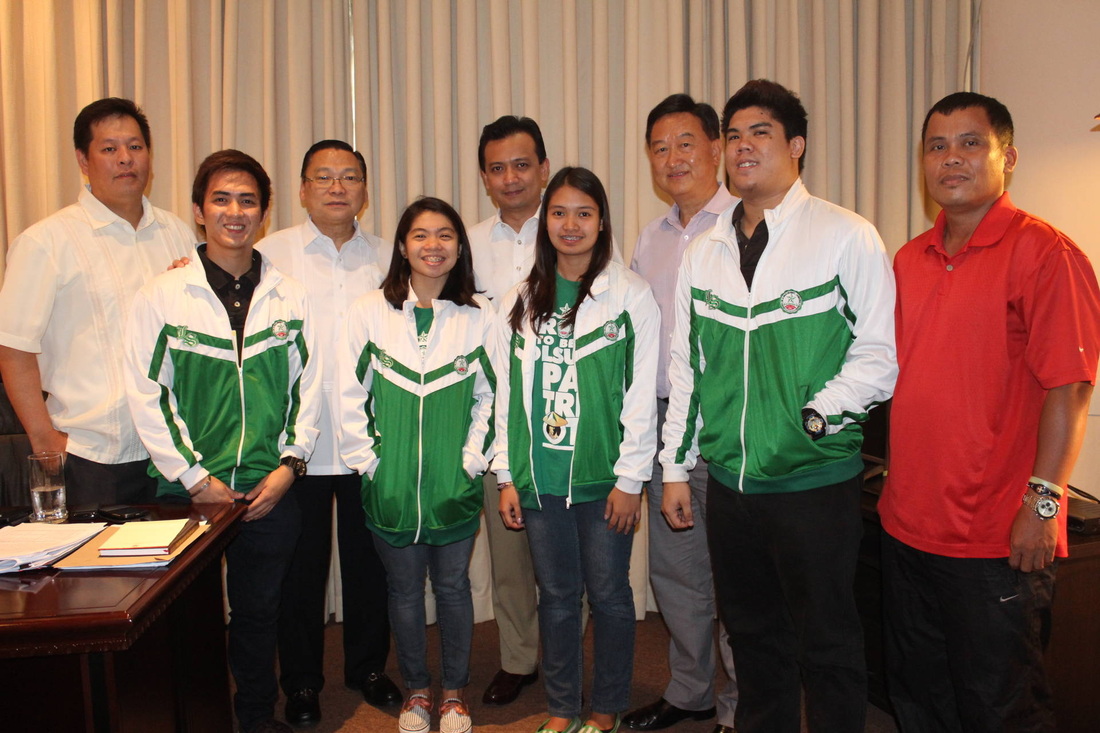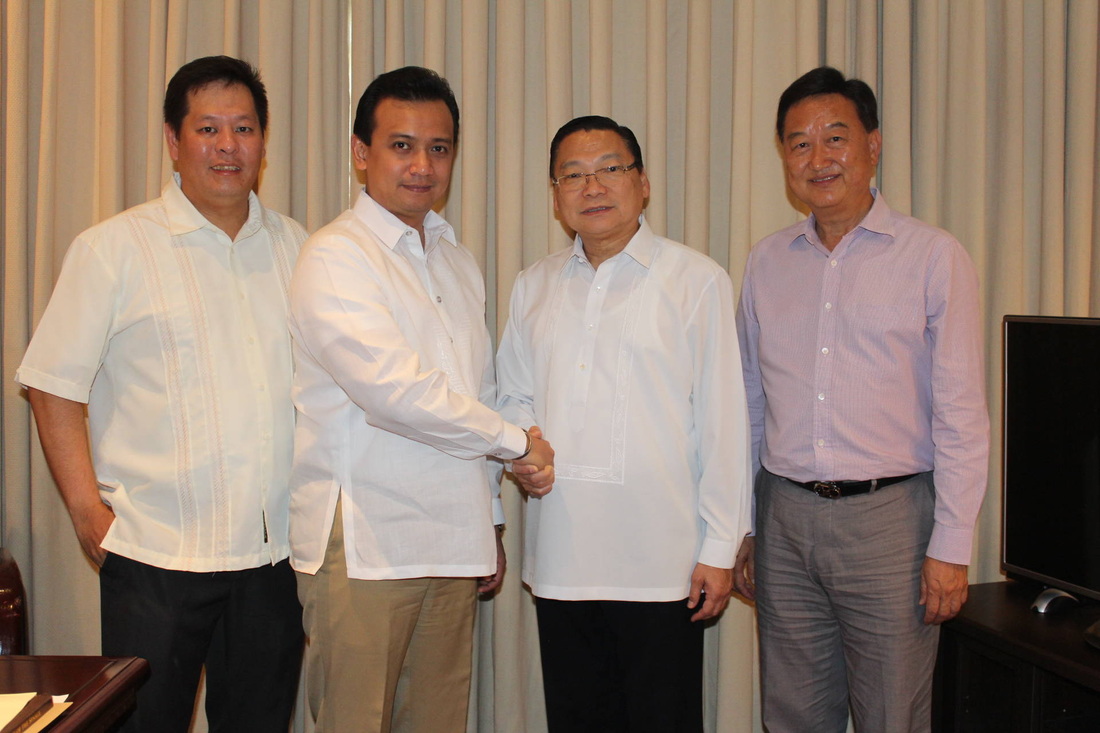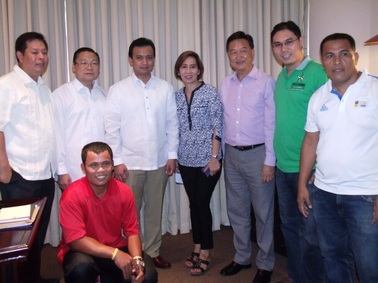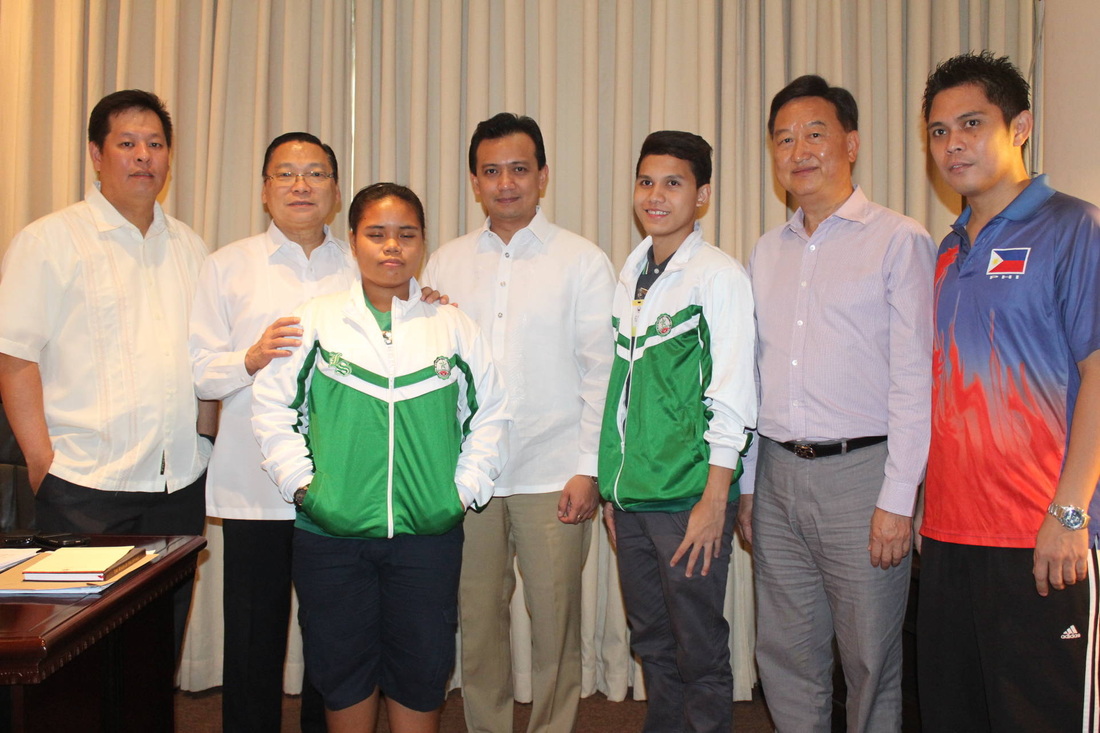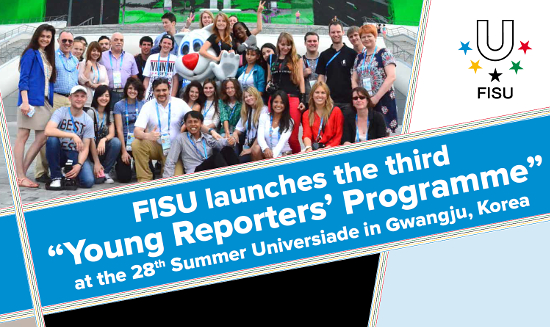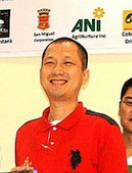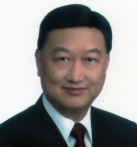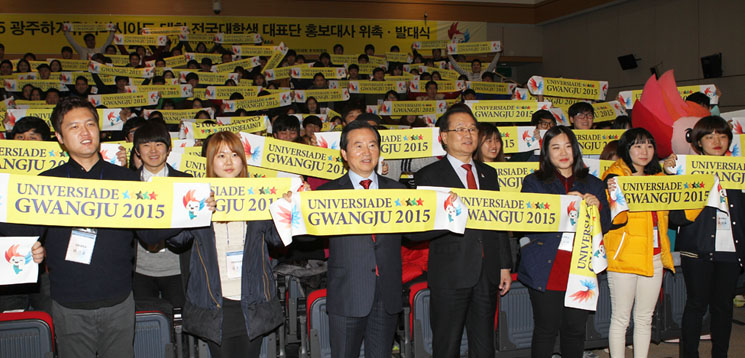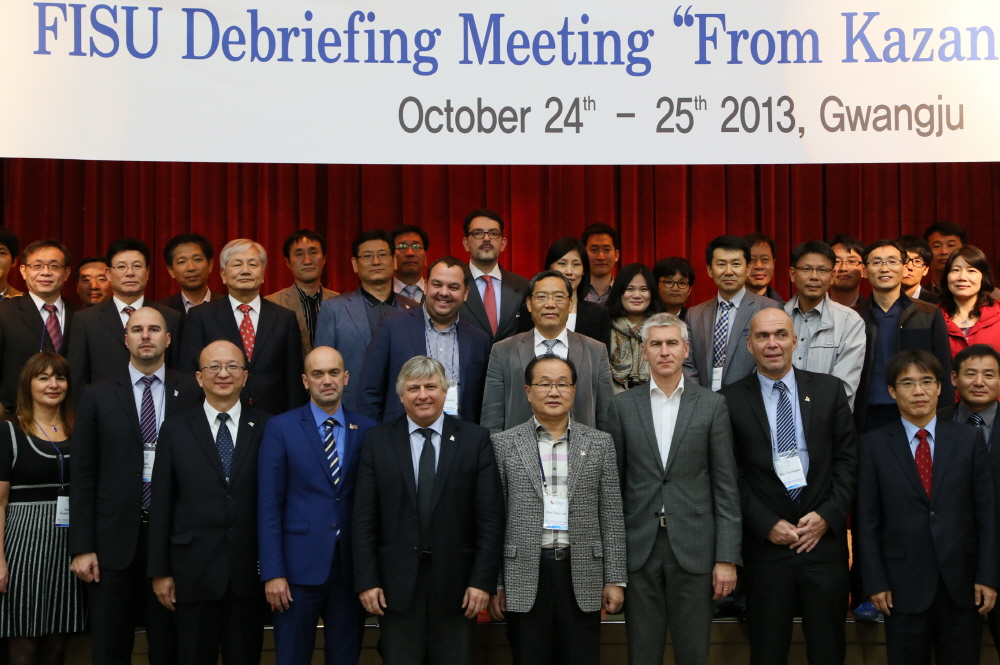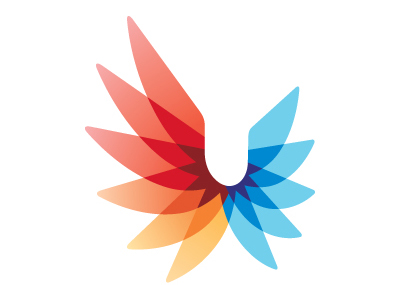|
|
|
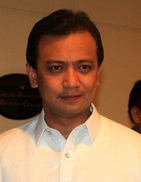 Senator Trillanes
Senator Trillanes
Senator Antonio F. Trillanes IV is the 3rd Philippines' Head of Delegation (HoD) to the Summer Universiade. This time to the 28th Summer Universiade in Gwangju City, Korea from July 3rd to 14th, 2015;
A member of the Philippine Senate year 2013 -2019;
A member of the Philippine Senate year 2013 -2019;
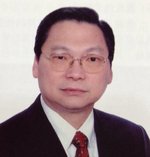 Mr. Angel Ngu
Mr. Angel Ngu
Deputy Head of Delegation, Mr. Angel Ngu, is the Executive Vice President of the Federation of Filipino Chinese Chamber of Commerce & Industries Incorporated (FFCCCII):
As Deputy Head of Delegation (Deputy HoD), Mr. Angel Ngu is enjoined to support the Head of Delegation, Senator Antonio F. Trillanes IV, and, in case of his inability to communicate with the FESSAP National Secretariat to act on his behalf and coordinate with the Organizing Committee of the 28th Summer Universiade in Gwangju, Korea, on the technical aspects of our participation, attend HoD meeting whenever the HoD is unavailable or inform the National Secretariat of his assignment of any available official to such international HoD meetings prior to the start of the 28th Summer Universiade in July 2015.
As the Deputy Head of Delegation, Mr. Ngu will act as the chief aide of Senator Trillanes in heading the Philippine Delegation to the Gwangju Universiade Games.
As Deputy Head of Delegation (Deputy HoD), Mr. Angel Ngu is enjoined to support the Head of Delegation, Senator Antonio F. Trillanes IV, and, in case of his inability to communicate with the FESSAP National Secretariat to act on his behalf and coordinate with the Organizing Committee of the 28th Summer Universiade in Gwangju, Korea, on the technical aspects of our participation, attend HoD meeting whenever the HoD is unavailable or inform the National Secretariat of his assignment of any available official to such international HoD meetings prior to the start of the 28th Summer Universiade in July 2015.
As the Deputy Head of Delegation, Mr. Ngu will act as the chief aide of Senator Trillanes in heading the Philippine Delegation to the Gwangju Universiade Games.

Gwangju Universiade Sports Programme
(Schedule Dates of Competitions):
(Schedule Dates of Competitions):
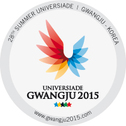
Summer Universiade Sports Programme
The programme of the Universiade currently includes 10 compulsory sports (13 compulsory disciplines) and up to 3 optional sports:
The programme of the Universiade currently includes 10 compulsory sports (13 compulsory disciplines) and up to 3 optional sports:
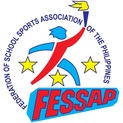
^^^^^^^^^^^^^^^^^^^^^^^^^^^^^^^^^^^^^^^^^^^^^^^^^^^^^^^^^^^^^^^^^^^^^^^^^^^^^

Nuribi
“Angel of light that spreads the hope of
creation throughout the world “
The name Nuribi is a combination of the Korean words ‘nuri’ for world and ‘bi’ for fly. Nuribi is a messenger of light and a bridge of communication amongst the world’s youth. It serves as a symbol to introduce the ‘EPIC’ vision of the Gwangju Universiade: environmentally-friendliness, peace, IT, and culture. It also represents the unfolding wings of creation to deliver the ‘light of Gwangju’ to the world.
The emblem and mascot together form a consistent identity of light representing Gwangju, the city of light.
“Angel of light that spreads the hope of
creation throughout the world “
The name Nuribi is a combination of the Korean words ‘nuri’ for world and ‘bi’ for fly. Nuribi is a messenger of light and a bridge of communication amongst the world’s youth. It serves as a symbol to introduce the ‘EPIC’ vision of the Gwangju Universiade: environmentally-friendliness, peace, IT, and culture. It also represents the unfolding wings of creation to deliver the ‘light of Gwangju’ to the world.
The emblem and mascot together form a consistent identity of light representing Gwangju, the city of light.
Be moved by the passion of tomorrow’s leaders in Gwangju. The Summer Universiade, the sporting festival for the world’s university students and a dynamic display of the harmony of sports, culture, and education, will be held in Gwangju in July 2015.
Duration: July 3rd ~ 14th, 2015(12 days)
Venues: Gwangju World Cup Stadium and other stadiums in Gwangju and across South Jeolla Province, North Jeolla
Province
Organizer: FISU (International University Sports Federation)
Host: KUSB (Korea University Sports Board), GUOC (2015 Gwangju Summer Universiade Organizing Committee)
Sports: 21 (13 compulsory sports / 8 optional sports) - Compulsory: Artistic Gymnastics / Athletics / Basketball / Diving
/ Fencing / Football / Judo / Rhythmic Gymnastics / Swimming / Table Tennis / Tennis / Volleyball / Water Polo
- Optional: Archery / Badminton / Baseball / Golf / Handball / Rowing / Shooting Sport /Taekwondo
Participation: Some 20,000 participants from 170 countries (including athletes and officials)
International events: 2015 FISU Executive Committee Meeting
2015 FISU Conference
2014 FISU Forum
2012 Gwangju World University Badminton Championship
Duration: July 3rd ~ 14th, 2015(12 days)
Venues: Gwangju World Cup Stadium and other stadiums in Gwangju and across South Jeolla Province, North Jeolla
Province
Organizer: FISU (International University Sports Federation)
Host: KUSB (Korea University Sports Board), GUOC (2015 Gwangju Summer Universiade Organizing Committee)
Sports: 21 (13 compulsory sports / 8 optional sports) - Compulsory: Artistic Gymnastics / Athletics / Basketball / Diving
/ Fencing / Football / Judo / Rhythmic Gymnastics / Swimming / Table Tennis / Tennis / Volleyball / Water Polo
- Optional: Archery / Badminton / Baseball / Golf / Handball / Rowing / Shooting Sport /Taekwondo
Participation: Some 20,000 participants from 170 countries (including athletes and officials)
International events: 2015 FISU Executive Committee Meeting
2015 FISU Conference
2014 FISU Forum
2012 Gwangju World University Badminton Championship
January 2014 (FISU news)
- 300 regional representatives get appointed as ambassador -
To encourage the participation of University students in promoting the 2015 Gwangju Universiade, University students from around the country gathered together.
2015 Gwangju Summer Universiade Organizing Committee (hereafter GUOC) held the appointment ceremony for ‘Unifriends’, promotional ambassador group made up of University students. More than 300 students from all regions around the nation, including the presidents of each student council, gathered at the May 18th Memorial Culture Center on the 16th to receive the appointment certificate as promotional ambassadors and vow to actively promote the upcoming global event.
In addition to the ceremony, students visited the May 18th National Cemetery to pay their respects and experienced firsthand Gwangju’s spirit of peace, human rights and democracy.
Shim Yun-jeong, one of the students appointed as promotional ambassador, expressed, “I am really proud of becoming a member of the Gwangju Universiade, a global festival for university students, and I will do my best to promote the Universiade at my university.”
On the 17th, the students will visit Mudengsan Mountain National Park and take a tour of the new baseball stadium (the Gwangju-Kia Champions Field), which will be used for baseball events during the Gwangju Universiade. At the stadium, the students will wish for a successful Universiade by sending up their wishes on balloons into the sky.
One of the organizers stated, “In order for the Gwangju Universiade to become successful, we need the full support and participation of the University students, who are in the center of it all. That is why there are more than 24,000 University students actively taking part as Unifriends, Unibirds, and student reporters.” He also added, “We aim to recruit around 150,000 students to become a supporting network and they will lead in the success of the Universiade, volunteering and working together with international students from around the globe.”
* Unifriends : Promotional ambassadors made up of University Students
* Unibirds : Supporters group of University students who take part in all sorts of promotions
`````````````````````````````````````````````````````````````````````````````````````````````````
- 300 regional representatives get appointed as ambassador -
To encourage the participation of University students in promoting the 2015 Gwangju Universiade, University students from around the country gathered together.
2015 Gwangju Summer Universiade Organizing Committee (hereafter GUOC) held the appointment ceremony for ‘Unifriends’, promotional ambassador group made up of University students. More than 300 students from all regions around the nation, including the presidents of each student council, gathered at the May 18th Memorial Culture Center on the 16th to receive the appointment certificate as promotional ambassadors and vow to actively promote the upcoming global event.
In addition to the ceremony, students visited the May 18th National Cemetery to pay their respects and experienced firsthand Gwangju’s spirit of peace, human rights and democracy.
Shim Yun-jeong, one of the students appointed as promotional ambassador, expressed, “I am really proud of becoming a member of the Gwangju Universiade, a global festival for university students, and I will do my best to promote the Universiade at my university.”
On the 17th, the students will visit Mudengsan Mountain National Park and take a tour of the new baseball stadium (the Gwangju-Kia Champions Field), which will be used for baseball events during the Gwangju Universiade. At the stadium, the students will wish for a successful Universiade by sending up their wishes on balloons into the sky.
One of the organizers stated, “In order for the Gwangju Universiade to become successful, we need the full support and participation of the University students, who are in the center of it all. That is why there are more than 24,000 University students actively taking part as Unifriends, Unibirds, and student reporters.” He also added, “We aim to recruit around 150,000 students to become a supporting network and they will lead in the success of the Universiade, volunteering and working together with international students from around the globe.”
* Unifriends : Promotional ambassadors made up of University Students
* Unibirds : Supporters group of University students who take part in all sorts of promotions
`````````````````````````````````````````````````````````````````````````````````````````````````
October 24 - 25, 2014 Gwangju City (FISU News)
- transfer of Games operating know-how at the 2013 Kazan Debriefing Meeting -
- Emphasis on bringing up the timeline, systematic training, and test events -
The 2013 Kazan Debriefing meeting, that was held jointly by the 2015 Gwangju Summer Universiade Organizing Committee (GUOC 2015) and International University Sports Federation (FISU) at Chosun University for two days from the 24th and 25th, successfully finished.
The debriefing meeting is a knowledge transfer program, prepared by FISU, for the succeeding organizing committee to pass on their know-how and experience of hosting the Universiade to the next host city. At this meeting, FISU, 2013 Kazan Organizing committee, 2017 Taipei Organizing committee and GUOC members participated and held enthusiastic discussions on the organization of the Games.
From FISU, First Vice-President, Oleg Matytsin, Secretary-General/CEO, Eric Saintrond, and 3 other delegates attended the debriefing meeting. And to pass on all of their expertise, 16 officials from the Kazan Organizing Committee came to Gwangju, incuding First Deputy Director-General, Azat Kadyrov.
In addition, 11 people from the 2017 Taipei Organizing Committee, including the Taipei City Secretary-General, Kuo-Ann Wu, attended as observers.
The debriefing meeting consisted of break-out sessions for 15 different functional areas, three plenary sessions, client experience from the Head of the Korean delegation, Kim Seung-cheol, and round-table session with the head of each organization, and created an environment for high-quality transfer of knowledge.
According to the Kazan OC, the Kazan Universiade, which occurred from July 6th to 17th, was successful in getting participation from 11,778 athletes and delegations from 160 countries for the Games, along with 3,000 media and press officials.
These are some of the matters discussed during the debriefing meeting:
•Basically, the planning of the Games needs to be based on a client-oriented service approach.
In recruiting volunteers for the Universiade, the OC gathered volunteers from Kazan, other parts of Russia, as well as abroad. Emphasis was put on motivating the volunteers to participate until the end of the games.
•For accommodation, various client groups were provided the necessary accommodation according to their needs, and some customers used the method of booking through a specified agency, then settling the payments afterwards.
As each country has a different point of view, establishment of religious centers in the Athletes’ village needs careful consideration.
For catering, consideration is needed for the types of cuisines that are popular among the athletes, especially the menu should be considerate of the diet of European countries.
•For transportation, the Kazan OC recruited drivers and trained them from one month prior to the Games, to ensure effective management.
In the field of Media and TV, it was emphasized several times that the Host Broadcaster must be assigned as soon as possible, as not to interfere with other matters related to the field.
Also, consultation regarding the competition schedule with the Technical officials and each sports federation was pointed out as the key in a successful Universiade Games.
Regarding the opening and closing ceremony, the Kazan OC stated that while respecting the opinion of the experts for the planning process, the most important aspect that should be considered when making the program is the convenience of the athletes.
•All members of the OC should keep in mind two common matters, which are systematic training and testing events. Therefore, advice was given on bringing up the timeline for preparations for a successful hosting of the Games.
Also, crisis preparation should be arranged in cases of overflow in certain venues, so the clients would not have to wait in long lines.
There was emphasis on establishing a flow of communication regarding any problems that may arise during the Games.
This meeting also provided the opportunity for the Gwangju OC members to hear firsthand experiences on handling crises that occurred during the Kazan Universiade, which would not be found in any paperwork.
Meanwhile, this debriefing meeting proved to be an important and meaningful time for the organizers, FISU and Kazan OC, as well as for the recipients, Gwangju OC, and Taipei OC.
At the closing ceremony, FISU First Vice-President, Oleg Matytsin stated, “I would like to thank the Gwangju OC for providing this wonderful meeting and to Kazan OC for eagerly passing on your knowledge. I’m sure that this will contribute to greatly developing the Universiade.”
First Deputy Director-General of Kazan OC, Azat Kadyrov said, “I am grateful that the Kazan Universiade, which was well-received by all those who attended, could be leave a legacy in the history of Universiade by this knowledge transfer program.”
Secretary-General of GUOC, Kim Yoon-suk commented in his closing speech, “With the learnings gained through this debriefing meeting, we will work closely with our government and FISU to make the Gwangju Universiade something that the whole world can enjoy together.”
Now, based on the knowledge gained from the debriefing meeting and the results from the last FISU inspection, the Gwangju OC will be revising the operation plans and reorganizing the organizing committee to enter into ‘practical operation system’.
- transfer of Games operating know-how at the 2013 Kazan Debriefing Meeting -
- Emphasis on bringing up the timeline, systematic training, and test events -
The 2013 Kazan Debriefing meeting, that was held jointly by the 2015 Gwangju Summer Universiade Organizing Committee (GUOC 2015) and International University Sports Federation (FISU) at Chosun University for two days from the 24th and 25th, successfully finished.
The debriefing meeting is a knowledge transfer program, prepared by FISU, for the succeeding organizing committee to pass on their know-how and experience of hosting the Universiade to the next host city. At this meeting, FISU, 2013 Kazan Organizing committee, 2017 Taipei Organizing committee and GUOC members participated and held enthusiastic discussions on the organization of the Games.
From FISU, First Vice-President, Oleg Matytsin, Secretary-General/CEO, Eric Saintrond, and 3 other delegates attended the debriefing meeting. And to pass on all of their expertise, 16 officials from the Kazan Organizing Committee came to Gwangju, incuding First Deputy Director-General, Azat Kadyrov.
In addition, 11 people from the 2017 Taipei Organizing Committee, including the Taipei City Secretary-General, Kuo-Ann Wu, attended as observers.
The debriefing meeting consisted of break-out sessions for 15 different functional areas, three plenary sessions, client experience from the Head of the Korean delegation, Kim Seung-cheol, and round-table session with the head of each organization, and created an environment for high-quality transfer of knowledge.
According to the Kazan OC, the Kazan Universiade, which occurred from July 6th to 17th, was successful in getting participation from 11,778 athletes and delegations from 160 countries for the Games, along with 3,000 media and press officials.
These are some of the matters discussed during the debriefing meeting:
•Basically, the planning of the Games needs to be based on a client-oriented service approach.
In recruiting volunteers for the Universiade, the OC gathered volunteers from Kazan, other parts of Russia, as well as abroad. Emphasis was put on motivating the volunteers to participate until the end of the games.
•For accommodation, various client groups were provided the necessary accommodation according to their needs, and some customers used the method of booking through a specified agency, then settling the payments afterwards.
As each country has a different point of view, establishment of religious centers in the Athletes’ village needs careful consideration.
For catering, consideration is needed for the types of cuisines that are popular among the athletes, especially the menu should be considerate of the diet of European countries.
•For transportation, the Kazan OC recruited drivers and trained them from one month prior to the Games, to ensure effective management.
In the field of Media and TV, it was emphasized several times that the Host Broadcaster must be assigned as soon as possible, as not to interfere with other matters related to the field.
Also, consultation regarding the competition schedule with the Technical officials and each sports federation was pointed out as the key in a successful Universiade Games.
Regarding the opening and closing ceremony, the Kazan OC stated that while respecting the opinion of the experts for the planning process, the most important aspect that should be considered when making the program is the convenience of the athletes.
•All members of the OC should keep in mind two common matters, which are systematic training and testing events. Therefore, advice was given on bringing up the timeline for preparations for a successful hosting of the Games.
Also, crisis preparation should be arranged in cases of overflow in certain venues, so the clients would not have to wait in long lines.
There was emphasis on establishing a flow of communication regarding any problems that may arise during the Games.
This meeting also provided the opportunity for the Gwangju OC members to hear firsthand experiences on handling crises that occurred during the Kazan Universiade, which would not be found in any paperwork.
Meanwhile, this debriefing meeting proved to be an important and meaningful time for the organizers, FISU and Kazan OC, as well as for the recipients, Gwangju OC, and Taipei OC.
At the closing ceremony, FISU First Vice-President, Oleg Matytsin stated, “I would like to thank the Gwangju OC for providing this wonderful meeting and to Kazan OC for eagerly passing on your knowledge. I’m sure that this will contribute to greatly developing the Universiade.”
First Deputy Director-General of Kazan OC, Azat Kadyrov said, “I am grateful that the Kazan Universiade, which was well-received by all those who attended, could be leave a legacy in the history of Universiade by this knowledge transfer program.”
Secretary-General of GUOC, Kim Yoon-suk commented in his closing speech, “With the learnings gained through this debriefing meeting, we will work closely with our government and FISU to make the Gwangju Universiade something that the whole world can enjoy together.”
Now, based on the knowledge gained from the debriefing meeting and the results from the last FISU inspection, the Gwangju OC will be revising the operation plans and reorganizing the organizing committee to enter into ‘practical operation system’.

